It’s no secret that oral health is the foundation for overall health in adults and children alike. But did you know that your oral health can have an effect on the health of your eyes, too?
August is National Eye Care Month. There are plenty of reasons for us to encourage patients to take steps to improve their or their child’s vision, even in unexpected ways — like coming in to see your Premier orthodontist.
Strong teeth and gums can support healthy vision. And dental diseases can lead to poor sight and more serious eye complications.
It’s important to stay up to date on your child’s back to school eye exams and dental visits. Together, you can practice proper oral hygiene in order to protect your smiles and vision for years to come.
If it’s been a while since your child has had an eye or dental exam, here’s what you should know about the connection between eye and oral health while scheduling their next appointments.
Can a Dental Problem Lead to an Eye Infection?
Oral health problems not only impact the way your smile looks, but also how you feel.
Poor oral health has been proven to lower your self-esteem. It can also make eating and speaking difficult, cause pain, and even lead to tooth loss.
As if these side effects aren’t bad enough, poor oral hygiene can lead to infection and disease in other areas of your body as well — including your eyes.
For example, an infected tooth at the top of your mouth could cause swelling in other areas of your face, like your eye. And dental problems like gum disease have been linked to causing more serious illnesses that can impact eye health, like diabetes.
The effects of poor oral hygiene are a concern for children and adults. Long-term dental diseases put adults at risk of developing Glaucoma and serious eye conditions, too.
While preventing dental and vision problems may feel daunting, at Premier Orthodontics, we have practical steps that you can take to ensure your smiles and eyes stay healthy for years to come.
Signs That Your Child May Have a Vision Problem
Young children may not always know when something is wrong with their body. Even if they can tell something is wrong with their eyes or vision, they may not know how to tell you. Being aware of the common signs of pediatric vision problems can help keep your child’s eyes strong as they develop.
Some indicators that your child may have trouble seeing (or that they may be suffering from a concerning eye condition) include:
- Itching, pain, or discomfort
- Misalignment (eyes that cross or point in different directions)
- Persistent redness
- Discolored pupils
- Drooping eyelids
- Pus or discharge in their eye
- Fluttering or irregular eye movement
If your child experiences one or more of these symptoms, it may be time to schedule an eye test.
Many pediatric eye problems can be easily treated by a doctor, or resolve on their own over time with close monitoring.
It’s important to seek professional treatment from a pediatric ophthalmologist sooner rather than later to prevent more serious complications from developing.
Vision Can Impact Your Child’s School Performance
Vision problems can also cause problems with your child’s school performance. Poor vision can cause your child to not be able to see boards at school, or even content online.
1 in 5 preschoolers in the United States have vision problems. By the time they enter school, 1 in 4 will need or wear corrective lenses. The biggest issue is that children often won’t say anything as they don’t know what their vision should look like.
How Can You Protect Eye Health?
Children aren’t always the best at communicating when something is off about their body. They might not even be aware of having a change in vision.
If they can’t see clearly or are experiencing headaches or discomfort due to an eye problem, they may not know how to explain how they feel.
That’s why it’s important for you to be vigilant in monitoring and promoting healthy vision for your children. This remains true as your child gets older and enters their teenage years.
Some ways to accomplish this include:
- Getting comprehensive pediatric eye exams every year
- Using protective eyewear when participating in contact sports or swimming in a pool
- Wearing sunglasses
- Being aware of your family’s eye history (astigmatism, lazy eye, etc.)
- Living a healthy lifestyle: eating a balanced diet, drinking plenty of water, and staying active
- Getting enough sleep
Signs That You or Your Child May Have an Oral Health Problem
Much like with eye problems, your child may not know if something isn’t quite right with their mouth. Even adults may miss their own dental issues.
By closely examining your family’s mouths on a regular basis and paying attention to behavior, you can spot any potential oral health issues early on.
Finding issues early can lead to a smoother treatment experience, and can prevent other illnesses down the line.
Signs that you or your child may have an oral health problem include:
- Discomfort or sensitivity when eating, speaking, or brushing teeth
- Mouth sores on their gums or other parts of mouth
- Bleeding gums or teeth
- Discoloration
- Jaw pain or headaches
Dental problems won’t resolve on their own, and can cause more complicated (and expensive) concerns if left untreated.
If your family is complaining about tooth pain, has bleeding gums, or has experienced a mouth injury, don’t postpone seeking dental treatment. Call us today to see your orthodontist right away >
What’s the Best Dental Care Routine for Families?
Taking the time to care for your child’s oral health is essential to help them look their best, feel confident, and prevent other health issues from developing — including vision problems.
Below are a few simple steps that can make a tremendous difference in protecting the appearance, function, and overall health of your family’s smiles for a lifetime:
- Encourage brushing teeth twice a day with a fluoride toothpaste, for two minutes each time
- Use a soft electric toothbrush to ensure thoroughness and getting hard-to-reach places
- Teach the importance of flossing once a day
- Visit the dentist every six months for routine dental exams and professional cleanings
- Limit consumption of sugary and acidic foods that can increase chances of developing tooth decay
- Replace soda and juice with water during and after meals to wash away food particles and promote saliva production
Premier Orthodontics Can Help Keep Your Smile Healthy & Strong
At Premier Orthodontics, our experienced team is committed to helping your child maintain spectacular oral and overall health for a lifetime.
For more tips on how to keep your family’s smiles strong and beautiful, visit us online or schedule a convenient virtual consultation today.
We look forward to providing compassionate, professional care that is sure to give you a reason to smile!

